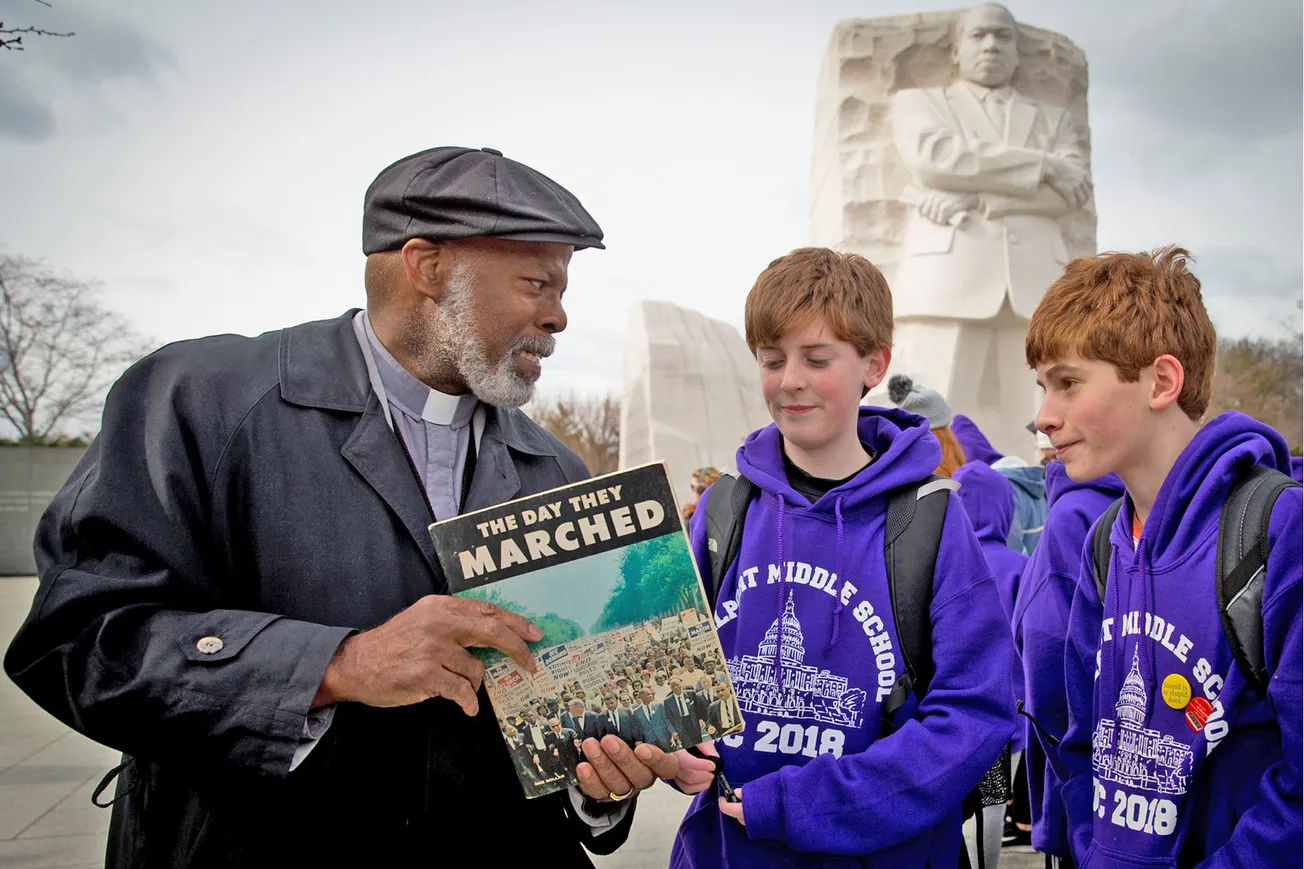This is the year that all Catholics in the United States are celebrating the 40th anniversary of the Black bishop’s historic exhortation, “What We Have Seen and Heard.” You might recall seeing, at one point or another, a photo of 10 African-American Catholic bishops from the 1980s, who were in fact the letter’s authors.
Likewise, if you watch the video of Servant of God Thea Bowman’s 1989 address to the U.S. bishops, you will see several of the Black bishops in their late 30s and early 40s. One is then-Auxiliary Bishop Wilton Gregory of Chicago, now the first African-American cardinal in Church history. Another is then-Auxiliary Bishop John Ricard of Baltimore.
As we conclude Black History Month in the United States, we invite you to reflect on the words of Servant of God Sister Thea Bowman, delivered at the USCCB Plenary Assembly in June 1989.
— U.S. Conference of Catholic Bishops (@USCCB) February 29, 2024
Watch Sr. Thea's complete address on our YouTube channel:https://t.co/q0OpAhkyP0 pic.twitter.com/8YJrSPT0AX
Some of those featured in the video and the photo were also present when the U.S. bishops penned in 1979 what I would call the Church’s most comprehensive document on racism in the United States: “Brothers and Sisters to Us.” As we work towards a better nation, we can start with building a better Church. As we do that, let’s revisit some of the actions that resulted in our seeing African-American Catholic bishops in the first place.
As people marched to achieve human rights and human dignity for Americans of all hues and ethnic backgrounds in the Civil Rights Movement, there was a communal gathering of African-American Catholics who played their part. In 1968, the National Black Catholic Clergy Caucus (NBCCC) and National Black Sisters’ Conference were formed. The historian Fr Cyprian Davis, the activist Fr George Clements, and the scholar Sr Jamie Phelps were among the prominent men and women from “our neighborhood” who worked to move in the world of that day.
Here are a few words shared about the state of the world and the state of the U.S. Church by the priests who formed the NBCCC:
“[We] strongly and deeply believe that there are few choices left to the Catholic Church, and unless it is to remain an enclave speaking to itself, it must begin to consult the black members of the Church, clerical, religious and lay. It must also begin to utilize the personnel resources of black Catholics in leadership and advisory positions in the whole Church and allow them to direct, for the most part, the mission of the Church in the black community. It is especially important that the financial resources channeled into the work of the Church in the black community be allocated and administered by black Catholic leadership.”
—NBCCC founding manifesto, 1968
Clements, one of the men present for that founding meeting, later held a closed-door session to tell his parishioners that as long as they were financially indebted to the local bishop, they did not have the freedom to be Church as they were called to be. Holy Angels Catholic Church in Chicago took care of its debt and built and sustained one of the largest Catholic schools in the archdiocese.
There was joy in having such a letter borne from the collective leadership of Black Catholic clergy, religious, and laity, a bold action in 1968, which resulted in the appointment of the many of the African-American bishops we see in 40th anniversary literature this year. They, no doubt, were moved by words shared by their brother in Christ, a young brother named Dr. Martin Luther King Jr. who, though not Catholic, had a relationship with the King of Kings. In his “I Have a Dream” speech, he shared: “Now is the time to make justice a reality for all of God’s children.” That remains part of the dream that has yet to be realized.

One more thought to share with you. Sr Thea, a saint who walked with some Catholics that you and I know, spoke these words in her 1989 address to the U.S. bishops, shared from one of the Black prelates, then-Auxiliary Bishop James Lyke of Cleveland: “Black Catholic Christians will be second-class citizens of the Church until they take their places in leadership beside their brothers and sisters of whatever race or national origin.”
When King shared his dream on that hot day in August 1963, he reminded the nation several times that “Now is the time!” Sr Thea, in her address to the bishops said, “Some of y’all are not gonna like this.” As we continue to celebrate Christ the King and begin the New Year in our Church, we are called to remember that we, as the Body of Christ, are called to share in his kingship.
As has been our history, and as you can see by what I have shared here, this is the time for radical action. Some folk will be distressed and say that you should not be so radical. And, when they do, remember that folk called Christ the King a radical. As the Temptations sang back in the day, “Keep on Trucking.” The kingdom comes when we claim our share of Christ’s kingship in the world. Let’s give the Temptations the last word: If you’re not ready, “Get Ready,” because here we come as the Body of Christ.
Deacon Timothy E. Tilghman is a permanent deacon of the Archdiocese of Washington, currently assigned to St. Teresa of Avila Catholic Church. He has two master’s degrees, one in public policy and the other in theology. He is the author of “Going to the Well to Build Community: A Pastor’s Guide to Evangelization.”
Want to donate to BCM? You have options.
a.) Support our #iGiveCatholic campaign.










